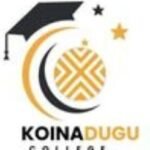Course Details
Course Duration
2 years
Career Opportunities:
- IT Support Technician
- Data Entry Clerk
- Administrative Assistant
- Customer Service Representative
- Office Clerk
- Help Desk Assistant
Skills Gained:
- Computer Operations & Troubleshooting
- Microsoft Word (Document Creation & Formatting)
- Microsoft Excel (Data Entry, Formulas, and Spreadsheets)
- Microsoft PowerPoint (Presentation Design & Delivery)
- Microsoft Outlook (Email Management & Scheduling)
Admission Requirements
- Candidates wishing to enrol for Diploma in Agri-Business must have two credits at WASSCE/GCE O’ level with at least a credit in a pure science subject or mathematics or at least five years of experience working in an agricultural institution.
- OND applicants must have three credit passes WASSCE/GCE O’ level with at least one credit in a pure science subject including English Language or a certificate in agriculture.
- Candidates wishing to pursue an HND programme must have four credit passes at WASSCE/GCE O’ level with at least two credits in pure science subjects including English Language or an OND.
- Candidates with Certificate in Agriculture wishing to pursue OND or with OND wishing to pursue HND without the required WASSCE/GCE O’ level passes must have a CGPA of 4.00 (80%).

Information communication & Technology

Course Overview
The National Diploma in Information Communication & Technology (ICT) is a technology-driven program designed to provide students with in-depth knowledge and hands-on skills in computer systems, networking, software development, and digital communication. This program integrates fundamental computing principles with modern technological advancements, equipping students with the expertise needed to excel in today’s fast-evolving digital landscape. The curriculum covers key areas such as computer hardware and maintenance, programming languages, database management, and web development, enabling students to build a strong foundation in ICT. Additionally, students will learn about networking infrastructure, cloud computing, and cybersecurity, ensuring they understand the critical role of IT in securing and managing digital environments.
Beyond technical skills, the program emphasizes problem-solving, critical thinking, and innovation, preparing students for careers in software development, IT support, network administration, and cybersecurity. With a strong focus on practical applications, students will engage in real-world projects, case studies, and industry collaborations to gain hands-on experience. They will also explore emerging trends such as artificial intelligence (AI), the Internet of Things (IoT), blockchain technology, and digital transformation strategies. By the end of the program, graduates will be well-equipped to pursue roles in software engineering, IT consultancy, cybersecurity analysis, and digital entrepreneurship, contributing to the growth and innovation of the global tech industry.
What You Will Learn
The Basic IT and Microsoft Office Course is designed to equip students with fundamental knowledge and practical skills in computer operations, hardware, software, and essential digital tools. Students will learn the basics of computer hardware components, including processors, memory, storage devices, and peripherals, as well as software fundamentals such as operating systems, application software, and system utilities. The course covers Microsoft Office Suite (Word, Excel, PowerPoint, Outlook, and Access), teaching students how to create professional documents, spreadsheets, presentations, and manage emails efficiently. Additionally, they will be introduced to basic networking concepts, file management, internet usage, and cybersecurity best practices to ensure safe and effective computer use. Students will also gain hands-on experience in troubleshooting common computer issues, installing and updating software, and managing digital files and storage. By the end of the course, learners will have a solid foundation in IT literacy, enabling them to confidently navigate digital environments for personal, academic, and professional purposes.
